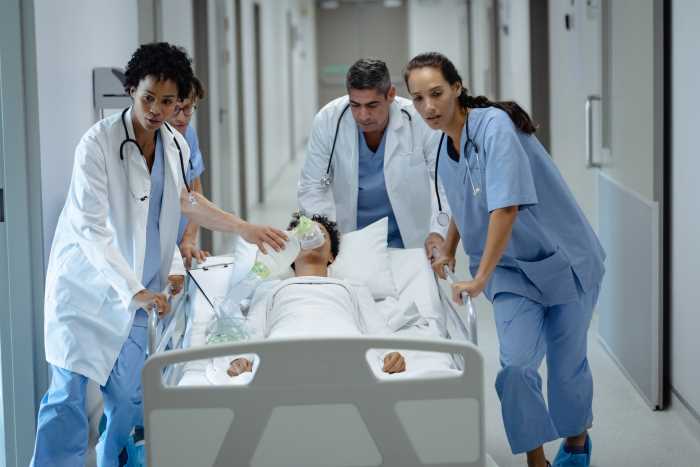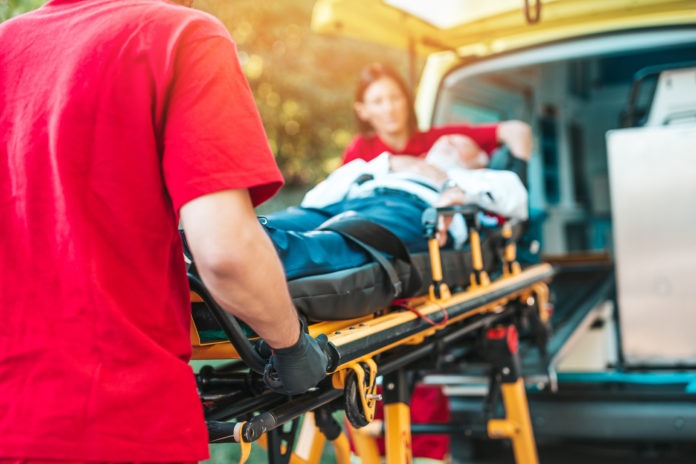Having an medical emergency can cause intense panic to everyone around someone experiencing medical problems. While everyone can call 911 right away, it can be so helpful if people could do some basic things to lessen the impact. It will help guarantee survival for the person putting them in better hands.
In any emergency that could happen, better to always come prepared. Not only can you save lives, but it can also help to minimize any damages, which could put lives in danger.
Any information for this urgent care location should be readily available to equip people with knowledge on what to do in case of an emergency. It is important to know the location of the nearest medical facility like urgent care. Knowing where they are located can save precious time when it comes to medical emergencies.
Moreover, listed below are the signs of medical emergencies and what to do next:
- Gasping For Air
Whether a person suddenly has trouble breathing or an intense scene that causes them to breathe hard, you should provide medical emergency action as they might be experiencing agonal breathing, which could quickly lead to death.
Agonal breathing is a condition where a person isn’t getting enough oxygen to their body, especially the brain, unable to survive. When a person experiences this, you should use hands-only CPR by pushing on the chest using your hands as hard and as fast as you can.
If you have an AED with you, now would be the best time to use it. Before something worse happens, you should watch for labored breathing, especially those who recently had cardiac arrest or stroke.
- Sudden Dizziness
In most cases, a person experiencing sudden and intense dizziness might faint, falling on the floor. When someone faints, you must lay the person flat on the back and make sure that they are breathing well. You can loosen any tight clothing such as belts, collars, choker necklaces and try to lift the legs slightly above the heart level to promote blood flow back to their head.
Alternatively, before the fainting happens, when you notice that a person is losing control of their grip and physical body, you should encourage them to sit or lie down while keeping their eyes closed. You must tell them to limit any head movements and offer them a tall glass of water.

- Increased Vomiting
Vomiting might be typical, especially if you just had a meal that feels awful and disgusting. However, if you notice that a person is experiencing increased vomiting for the entire day and is getting weaker by the minute, it’s a medical emergency you should attend to.
For a person who’s vomiting for the entire day, you should encourage them to sit still and drink sugary drinks such as ginger ale. Moreover, you should also provide them with as much water as possible to prevent dehydration. If the condition persists and worsens, you should bring them to the nearest emergency room for medical help.
- Non-Stop Bleeding
Whether you cut yourself or there’s been a minor accident inside your home, bleeding should stop in a couple of minutes after cleaning them through running water inside your home. The light pressure should help push down and stop the bleeding. However, if you’ve been standing in front of your sink for at least five minutes and still have intense bleeding going on, you should head to the emergency room right away.
Before bringing yourself to the hospital, you should try to place a sterile bandage or clean cloth over your wound and put maximum pressure as much as possible to help limit the bleeding.
Ask someone to drive you to the hospital as you apply pressure to your wound or call a cab if you’re alone.
- Slurred Speech
One of the signs that you should look out for as it could lead to a severe and deadly problem is slurred speech, accompanied by especially being unresponsive, numbness on one side of the body, or intense migraine that can be extremely painful. When those signs appear, you should bring them to the hospital immediately as they could be an early sign of stroke.
When a person is experiencing slurred speech, you should try to communicate with them as slowly as possible. Ideally, it would help if you did not rush them into speaking and allow them to work at their phase. However, if there is no improvement, you should visit a doctor right away as there could be an underlying serious illness.
In the meantime, you should try to keep your heart healthy at all times.
The Verdict
Medical emergencies have to be taken seriously at all costs. No matter how simple it is to resolve, it is essential that you perform any first aid actions, including CPR and preparing a complete first aid kit. Training for Coast to Coast First Aid Aquatics in Hamilton will be helpful to respond immediately in emergency situations.
For the safest option, you shouldn’t hesitate to bring someone to the hospital right away to be sure.


